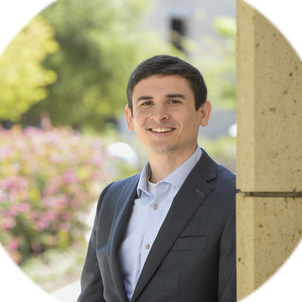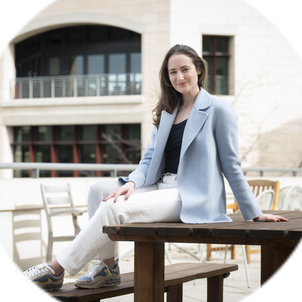Tim: There’s an information barrier in Ethiopia when it comes to opportunities for education. I’m one of the first people from my high school to ever leave the country for college. I had to walk 4 miles to get to a café with internet access to do things like submit applications for college.
Loza: I’m also from Ethiopia but from a different town than Tim. The lack of information can make it difficult to see the bigger picture or to imagine life outside your hometown.
I did four years of medical schooling in Ethiopia before coming to the U.S. I spent a lot of time in clinics and became frustrated by the lack of resources within hospitals. When it came to providing adequate care for patients, I saw that physicians in Ethiopia knew what to do, but they were limited in what they could do because they didn’t have access to the appropriate resources. Tools as simple as gloves were often not readily available. After wrestling with this for some time, I began to think that I could have more impact if I trained to be an engineer in a biomedical field. If I could help solve the resource-oriented issues in clinics, I’d be able to help physicians do their jobs better and ultimately help more patients.
I’m working toward a PhD in bioengineering. My research focuses on developing a new bacterial diagnostic platform that uses an optical imaging technique to identify infectious bacteria faster and with more accuracy than conventional blood culturing methods. Currently, it takes days to culture bacteria samples and even more time to test these samples for antibiotic resistance. What usually ends up happening in these cases is a physician orders a broad-spectrum antibiotic to try to stop an infection. Oftentimes this leads to antibiotic resistance and ultimately ineffective treatment. If we had a more robust way of identifying specific bacterial strains and their antibiotic susceptibility, we could get more accurate diagnoses, prescribe more effective treatment and save lives.
Tim: I’m pursuing my PhD in materials science and engineering. I work on lithium-ion batteries. These are the batteries used in phones, laptops and electric cars. Although they’ve been promising in providing high-energy storage, they are still limited. My research combines experiments and quantum mechanical simulations to better understand their limitations with the ultimate goal of improving their storage capacity. I’m fortunate to be able to use the X-ray sources at SLAC National Accelerator Laboratory to better understand how these batteries work.
In Ethiopia there’s a shortage of energy. Only 3 out of 10 people have access to electricity in sub-Saharan countries. Growing up, we had unpredictable power outages several times a week. I used to study by candlelight at night and wash my clothes by hand because we couldn’t power our washing machines. While I’m fortunate to be in the States and have the privilege to have power going every day and night, my family back at home still faces energy-related challenges every day. My personal experience makes me passionate about doing work to contribute to finding a solution to this problem.
Loza: When we applied for graduate school at Stanford, we were nominated to be fellows in the Enhancing Diversity in Graduate Education (EDGE) program. As fellows, we’ve been able to take advantage of mentorship opportunities to help us adjust to life as graduate students at Stanford. We’ve also received support for research and travel. This past December, we traveled back to Ethiopia after we participated in the African Materials Research Society conference in Botswana. As a part of that trip, we stopped in Ethiopia to present our research to an academic community at the University of Gondar and Addis Ababa Science and Technology University. In addition, we hosted a two-day workshop to share information about graduate education in the U.S. For example, how to apply to college or graduate school, how to get involved in research, etc.
Tim: By regularly going back to Ethiopia to share our experience, we hope to motivate others to see what’s possible. In addition, it’s important to me not to contribute to a brain-drain in Ethiopia. It’s important to me to take what I’m learning back to Ethiopia to help positively impact the community that I am from.
Loza: We hope to continue going back to sow the seeds of future academic relations where students and faculty can enter into research-related interactions. I think empowering the local teachers, professors, researchers and students to be able to conduct or participate in research efforts would have a great impact. For instance, public health issues in Ethiopia are different than in the U.S. There is a lot of infectious disease. While researchers interested in studying these diseases may not have enough fieldwork in the U.S, this research could be done in collaboration with public health researchers and scientists in Ethiopia.
Tim: We are in the midst of planning summer school courses at the University of Gondar in 2019 and 2020. We’re bringing together Ethiopian scientists and Stanford graduate students to offer classes in materials science, bioengineering, computer science, high-energy physics and cosmology. It is our hope to help increase the awareness and understanding of these fields among students in Ethiopia. Many undergraduate students in Ethiopia do not know what they can do with things like a physics degree aside from teaching. This was the case for me – I didn’t even know the field of materials science existed until I came here. I’d love to expose more people at home to this exciting field.
It is a shared vision among the diaspora scientific community to collaborate and work with people at home on cutting-edge research. We hope this summer school will establish an avenue for this collaboration.
Information is empowering. Loza and I are living proof of that. We hope to share our knowledge to help empower others to dream bigger.
Related spotlights

Thomas Colburn

Kayla Patterson

